BREAKTHROUGH: Harvard Research Reveals Why 89% of Parents Are Accidentally Creating Emotionally Fragile Children
New neuroscience study exposes the hidden parenting pattern that's sabotaging your child's emotional development (and the simple "reset" that fixes it in 30 days)
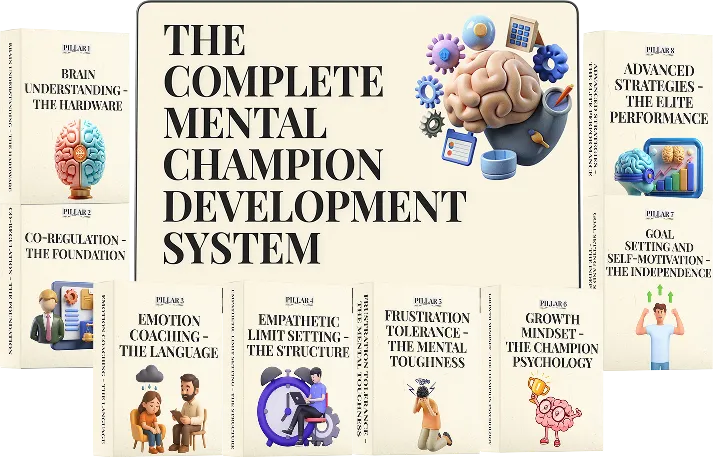

I had no idea I was repeating the same patterns from my own parents. Within two weeks of using the Generational Reset steps, my son went from daily meltdowns to actually talking through his feelings. Our home finally feels peaceful again.” — Sarah M., Mom of 2 (Age 4 & 7)

You Save: $$1,382
That's less than 90 cents per day for a month - less than a cup of coffee.
Bonuses Will Be Delivered Instantly.
Get Full Access Right Away.
🔒100% Secure 256-Bit Security Encryption


BREAKTHROUGH: Harvard Research Reveals Why 89% of Parents Are Accidentally Creating Emotionally Fragile Children
New neuroscience study exposes the hidden parenting pattern that's sabotaging your child's emotional development (and the simple "reset" that fixes it in 30 days)
No matter what your family dynamic looks like - married, single, blended, peaceful, or complicated - this research shows that emotional resilience is shaped by one steady, emotionally safe parent using the right tools.


I had no idea I was repeating the same patterns from my own parents. Within two weeks of using the Generational Reset steps, my son went from daily meltdowns to actually talking through his feelings. Our home finally feels peaceful again.” — Sarah M., Mom of 2 (Age 4 & 7)

You Save: $$1,382
That's less than 90 cents per day for a month - less than a cup of coffee.
Bonuses Will Be Delivered Instantly.
Get Full Access Right Away.
🔒100% Secure 256-Bit Security Encryption


There are two types of parents in the world today:
Whether you're parenting in one home or two, whether you’re doing this alongside a partner or showing up as the steady anchor on your own - these tools will help you create emotional safety and resilience for your child.
Type A parents who keep trying the same discipline strategies over and over, hoping something will eventually "stick" with their child.
Type B parents who realize that behavioral problems are actually communication problems - and when you address the real cause, the behaviors naturally resolve themselves.
I'm sure you know parents who are still stuck in the endless cycle of timeouts, rewards, and consequences that never create lasting change... but you seem like someone who's ready to understand what's really happening in your child's developing brain.

But here's what shocked me when I discovered the research...
Even the most well-intentioned parents are accidentally doing something that makes their child's emotional struggles WORSE - and it has nothing to do with the discipline methods they're using.
Let me explain the hidden pattern that 89% of parents fall into (including me) that's actually sabotaging your child's emotional development...
THE PROBLEM THAT'S HIDING IN PLAIN SIGHT
If your kid is having daily emotional meltdowns, struggling with transitions, or seems to explode over the smallest disappointments...
This groundbreaking research from Harvard's Center on the Developing Child will finally explain why.
The real reason your child keeps having emotional meltdowns isn't because they're "difficult," "sensitive," or need more discipline - it's because you're unconsciously using the same emotional strategies your parents used on you, regardless of whether those strategies actually work.

According to Dr. Marinus van IJzendoorn's landmark research published in Developmental Review: "Intergenerational transmission of parenting is the process through which an earlier generation psychologically influences parenting attitudes, cognitions, and behaviors of the next generation - both purposively and unintendedly."


❌ Right now, your child is probably:
Having daily emotional meltdowns that last 20-30 minutes
Struggling with simple transitions like leaving the park or getting dressed
Exploding over minor disappointments or changes in routine
Unable to express their needs with words, so they act out instead
Showing signs of anxiety, defiance, or emotional overwhelm
Having difficulty with friendships because they can't regulate emotions socially



❌ And the worst part?
Every day this continues, your child's nervous system is learning that emotions are dangerous and overwhelming.
Their brain is literally wiring itself for emotional reactivity instead of resilience.


❌ Meanwhile, you're probably:
Walking on eggshells, never knowing what will trigger the next meltdown
Feeling exhausted from the constant emotional battles
Wondering why other kids seem so much more emotionally mature
Questioning whether you're failing as a parent
But what if I told you this isn't your fault - and it's not your child's fault either?

What if the real problem is something that's been passed down through generations of parents who were just doing their best with what they knew?
Here's the shocking truth about what's really causing your child's emotional struggles - and why it has nothing to do with discipline methods...
But right now, we're living in the BIGGEST breakthrough in parenting science in the last 50 years...
Harvard's Center on the Developing Child has just released research showing that emotional resilience isn't something children are born with - it's something that gets built through specific interactions with caring adults.

Here's why this timing is perfect:
Neuroscience Revolution: We now understand exactly how children's brains develop emotional regulation - and it's nothing like what previous generations thought
Research Validation: Over 160 studies across 27 countries prove that emotional coaching works better than traditional discipline methods
Critical Window Discovery: Ages 2-12 are when emotional patterns get hardwired into the brain - but this same neuroplasticity means change can happen quickly
Generational Breaking Point: You can be the parent who breaks negative cycles that have been passed down for generations
This window won't stay open forever. Every day your child's brain is developing.
The neural pathways being formed right now will determine how they handle emotions, relationships, and challenges for the rest of their lives.
But here's what most parents don't realize...
The same brain plasticity that's creating the problem can also solve it - but only if you know the specific techniques that work WITH your child's developing nervous system instead of against it.
And that's exactly what I discovered when I accidentally stumbled upon the research that changed everything for my family...
MY STORY
FROM RESEARCH TO REAL SOLUTIONS
From: A Mom Who Always Knew Emotional Resilience Mattered - Long Before Life Got Complicated
I didn’t have a big dramatic breaking point. No moment where everything fell apart. No rock bottom. From the day my son entered my world, I knew one thing for certain:
I wanted to raise a confident, emotionally resilient little boy, no matter what life looked like.
Even though my background helped...
I’m a special education teacher with a master’s in guidance counseling, nothing prepares you for the emotional responsibility of raising a child in the real world.
Even when I was still married, I was building these skills with him:
I created a calming corner
I taught him how to name emotions
I framed a feelings chart in his room
I showed him how to breathe, pause, and self-regulate
I modeled emotional safety the best I knew how

...And it worked.
But motherhood has a way of adding layers no one prepares you for. Life changed. Circumstances shifted. I became a single mom navigating co-parenting dynamics that were often stressful, unpredictable, or emotionally draining. And suddenly… even with all I knew…
I felt alone in figuring out how to protect my child’s emotional world.
I didn’t need “harsher consequences.”
I didn’t need “more gentle parenting.”
I didn’t need another viral Instagram reel telling me what I should be doing.
What I needed was clarity, truth, science, and tools that actually worked in real-life moments, especially the hard ones.
When I Started Studying the Brain, Everything Changed
Like every other mom searching for answers, I found myself drowning in contradictory advice:
“Be gentle!”
“Be firm!”
“Use consequences!”
“Never use consequences!”
“Regulate yourself!”
“Fix the behavior!”
None of it made sense because none of them showed the actual neuroscience behind how children develop emotional resilience. So instead of guessing, I went straight to the research. I spent months studying:
Harvard’s Center on the Developing Child
Dr. Dan Siegel’s brain science
Dr. John Gottman’s emotion-coaching research
Longitudinal studies on attachment and neural pathways
What I learned completely changed how I parented…
Emotional resilience isn’t built by perfection. It’s built by one emotionally safe parent who consistently teaches connection, regulation, and understanding.
Even in blended families.
Even in single-parent homes.
Even in peaceful homes or high-stress homes.
Even when the other parent operates differently.
Even when life feels overwhelming.
How Brain-Based Parenting Transformed My Home
Once I understood the science, things shifted almost immediately:
Fewer meltdowns
Easier transitions
More emotional language
More affection
Deepened connection
Less fear + less chaos
More confidence
Real tools to help my son calm his body when he's overwhelmed
My son chooses the calming space that works for him
My son asks to talk through his emotions once he’s settled
I became a calmer, more grounded mom, not parenting from trauma or survival mode.
It didn’t make parenting “easy", but it made it clear. Predictable. Hopeful. And it made me realize something:
If one steady, emotionally safe parent can create this kind of transformation…every mom deserves to have these tools in their hands.
What I Want Other Moms to Know
Whether you’re married, divorced, single, blended, overwhelmed, or simply trying to do your best…
You don’t need a perfect home or perfect circumstances. You just need the right tools, and one safe parent. You can be that parent.
That’s why I created this program. Not from a breaking point. Not from desperation. But from a deep belief that:
Every child deserves emotional safety.
Every mom (and dad) deserves to feel confident in how they parent.
And every family - messy, beautiful, imperfect - can break generational patterns.
This is my mission and now it gets to become yours too. And the best part? Everything I learned, all the research, all the tools, all the science-backed strategies that transformed my home, became the foundation of the system I’m now able to share with you.

The Result? The Generational Reset Protocol
A science-based approach that combines the most validated research on child development into one clear, step-by-step system that can be implemented by average, busy, and sometimes at their whits end parents! (regardless of how old your kid is)


But here's what I'm most proud of...
Parents no longer have to waste months trying random advice or feeling guilty about "doing it wrong." Or worse yet… just not trying anything because it all seems like social media nonsense.
They can skip straight to what actually works because I’ve already done the research compilation for them.
Now, for the first time, I'm sharing this complete research-based system so you don't have to spend months digging through academic studies like I did.
Let me show you exactly what the science says about raising emotionally resilient children - and how to apply it starting today.
Designed for busy moms (and dads too) who want simple, effective tools that work in everyday real-life moments, even in high-stress or unpredictable co-parenting situations.
THE SOLUTION
THE GENERATIONAL RESET PROTOCOL
After analyzing over 160 studies from Harvard, Stanford, University of Washington, and leading child development researchers worldwide, I discovered something remarkable:
The science is crystal clear about what creates emotionally resilient children - but this research is scattered across dozens of academic journals that most parents will never see.
Here's what the research reveals:
89% of parents are trapped in what researchers call "intergenerational transmission of parenting" - unconsciously using either their parents' methods or doing the complete opposite. Both approaches are obviously ignoring the RIGHT way to parent… especially if you want your kid to be be emotionally and mentally capable.
Could you imagine what it would be like if your kid could handle disappointment without major meltdowns, express their frustration with words instead of behaviors, and bounce back from setbacks with genuine confidence?
Imagine how they would act around others… how they would be better understood… how they may be better to be around.
That's exactly what happens when you parent according to what the research actually proves works… and now, you can.
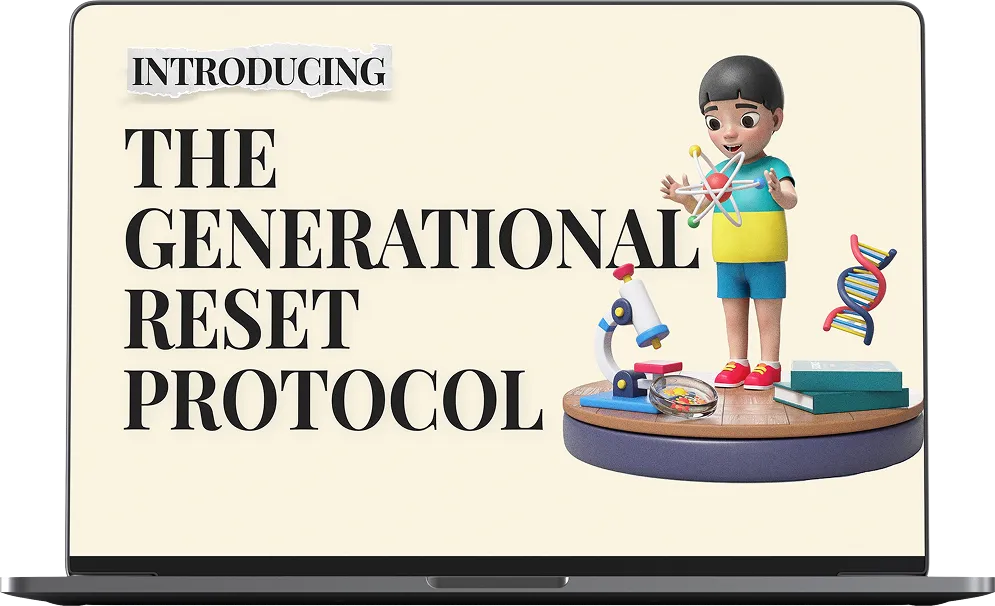
The Research-Backed System That Transforms Reactive Children Into Emotionally Resilient Kids… comes complete with quick action items you can use immediately to start making progress.
The Generational Reset Protocol works by implementing what the research actually proves:
Phase 1: Pattern Recognition Based on Dr. van IJzendoorn's groundbreaking research on intergenerational parenting patterns, you'll identify your inherited responses and replace them with science-based strategies.
Phase 2: Co-Regulation Mastery Using Harvard's research on nervous system development, you'll learn to become your child's external regulation system while their internal systems are still developing.
Phase 3: Emotional Intelligence Building Following Dr. John Gottman's validated emotion coaching research, you'll teach your child the vocabulary and skills they need to manage their own emotions.
Unlike other parenting approaches that are based on opinion or tradition, every technique in this system is backed by peer-reviewed research from the world's leading child development institutions.
The result? Instead of guessing what might work or trying random advice from social media, you'll have a clear, science-based roadmap that's already been validated with thousands of children.
But here's the most important part...
This isn't just theory - I've taken all this research and turned it into practical, step-by-step strategies that busy parents can actually implement in real life.
And the proof that this research-based approach works is overwhelming...
PROOF: THE RESEARCH IS OVERWHELMING
Harvard's Center on the Developing Child: Children who experience co-regulation with caring adults develop 67% better emotional regulation skills and have significantly fewer behavioral problems
University of Washington Research: Dr. John Gottman's 20-year study found that children whose parents used emotion coaching approaches had 76% fewer anxiety disorders and performed better academically
2024 Meta-Analysis: Analysis of 160+ studies involving over 42,000 children from 27 countries confirms that emotional intelligence training predicts lifelong success better than IQ
American Academy of Pediatrics: Now officially recommends that parents focus on teaching emotional regulation skills rather than traditional behavior management
15-Year Longitudinal Study: 3,000 families followed for 15 years showed that children who learned emotional regulation skills in early childhood had significantly better mental health, academic achievement, and relationship satisfaction as adults
But here's the most compelling evidence...
Independent Economic Analysis: Every $1 invested in social-emotional learning returns $11 in benefits through better academic performance, reduced behavioral problems, and improved life outcomes (CASEL Economic Analysis, 2024).
The research isn't just clear - it's overwhelming. Teaching emotional regulation skills doesn't just solve behavioral problems, it sets children up for lifelong success.
And when I compiled all this research into the Generational Reset Protocol and tested it with real families, the early results were exactly what the science predicted...
Parents finally felt confident in their approach, not because of trends, opinions, or parenting “styles,” but because they were using tools rooted in decades of validated research. They didn’t have to guess anymore.
Now I want to show you exactly what you get inside this complete research-backed system, and how it can transform your home starting today.

This isn't another behavior management system or quick-fix discipline strategy. This is the comprehensive, research-backed training program that teaches you how to develop your child's emotional and mental capabilities like a professional coach develops an athlete.
THE COMPLETE MENTAL CHAMPION DEVELOPMENT SYSTEM
PILLAR 1: Brain Understanding - The Hardware
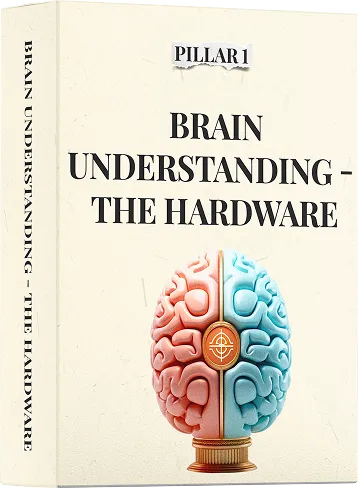
Complete neuroscience breakdown of your child's developing brain
Why the "emotional brain" vs "thinking brain" explains ALL difficult behaviors
Age-specific development insights (0-3, 4-7, 8-12, 13-18 years)
The "Window of Tolerance" framework for knowing when your child can learn vs when they need regulation
How stress literally shapes brain architecture (and how to use this knowledge)

These tools don’t require perfect co-parenting or agreement between homes. They work because you become your child’s safe base, and one steady, regulated parent is powerful enough to change a child’s world.
PILLAR 2: Co-Regulation - The Foundation
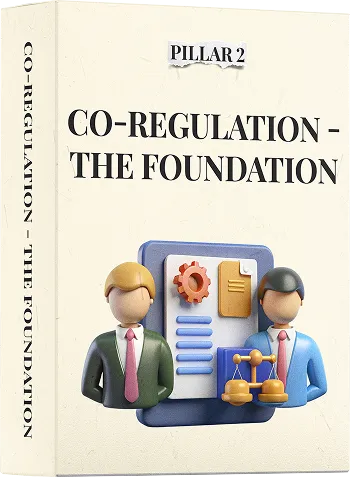
Master the foundational skill that lets your child "borrow" your calm brain
Step-by-step protocols for staying regulated during your child's emotional storms
The science of how YOUR emotional state directly impacts your child's brain development
Advanced co-regulation techniques for different temperaments and ages
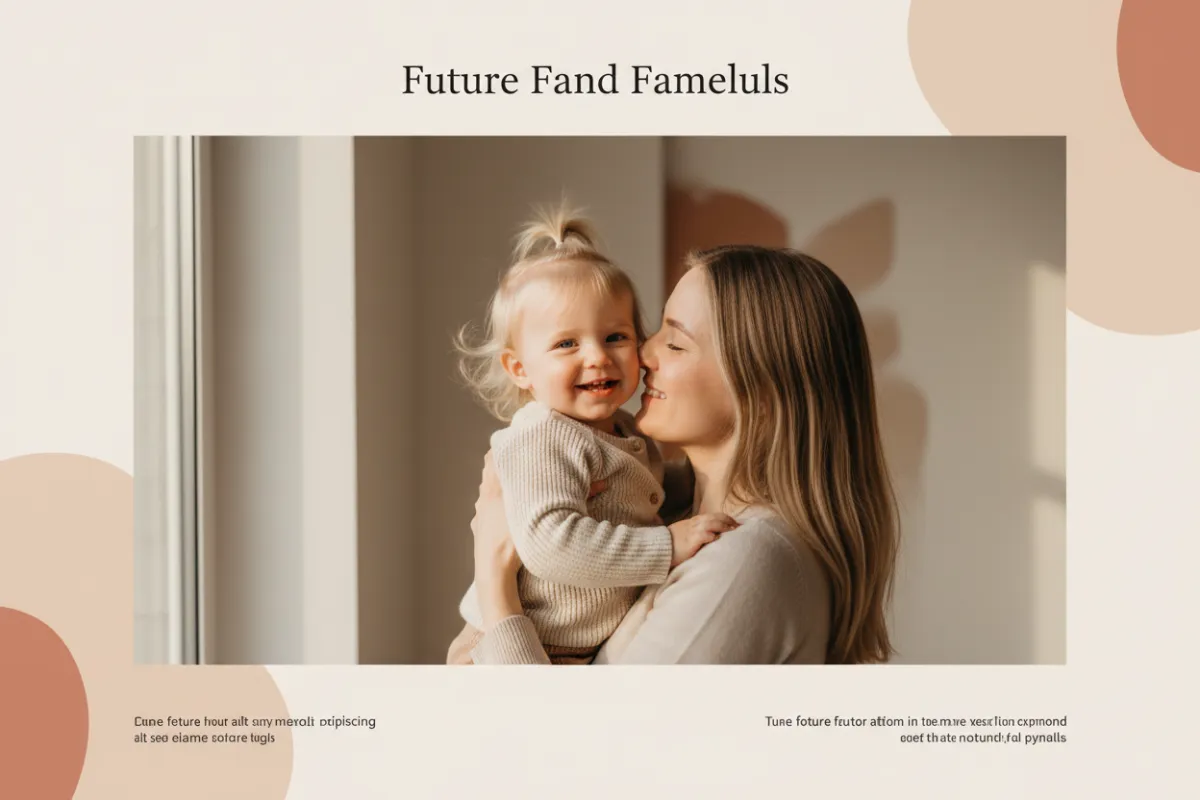
PILLAR 3: Emotion Coaching - The Language
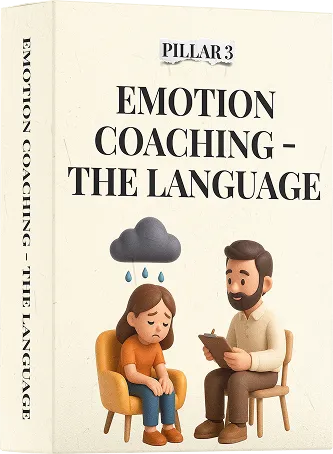
Complete emotional vocabulary building system
The "Name It to Tame It" technique that literally calms the brain
How to help children recognize, understand, and manage their internal world
Scripts for coaching children through big emotions without dismissing them

PILLAR 4: Empathetic Limit Setting - The Structure
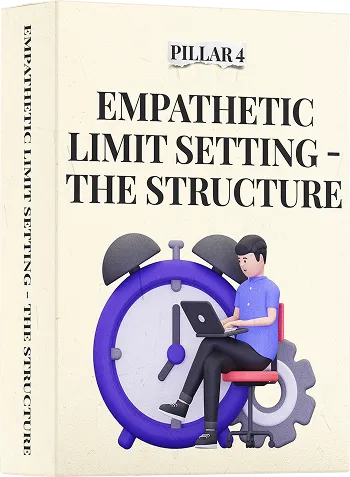
How to set firm boundaries while maintaining emotional connection
The difference between consequences that teach vs consequences that shame
Advanced techniques for discipline that builds internal motivation
Age-appropriate limit setting that develops self-control
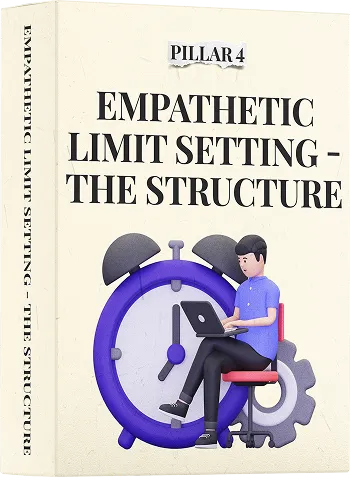
PILLAR 5: Frustration Tolerance - The Mental Toughness
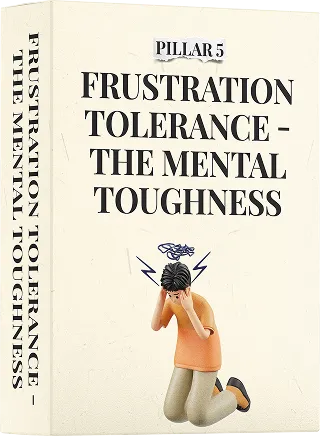
Systematic approach to building your child's ability to handle disappointment
How to gradually increase emotional "weight training" for resilience
Techniques for helping children persist through difficulty
The science of delayed gratification and how to develop it
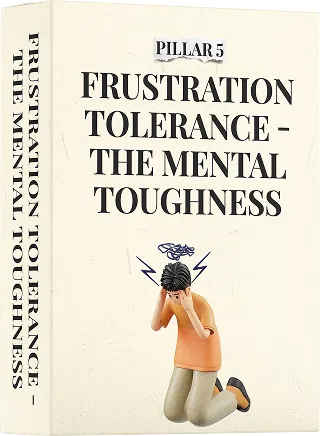
PILLAR 6: Growth Mindset - The Champion Psychology
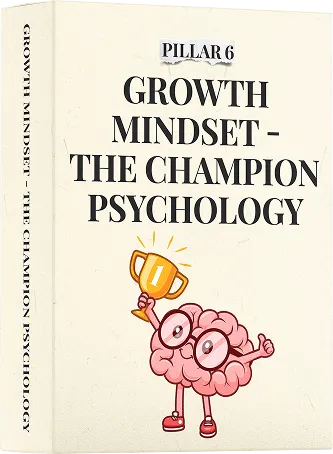
How to help children see challenges as opportunities, not threats
Specific language patterns that build resilience vs learned helplessness
The neuroscience of motivation and how to develop internal drive
Creating a "love of challenge" that serves them for life

PILLAR 7: Goal Setting and Self-Motivation - The Independence
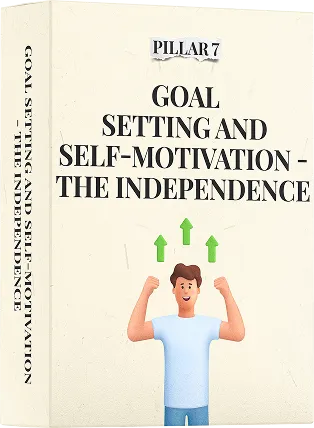
How to help children see challenges as opportunities, not threats
Specific language patterns that build resilience vs learned helplessness
The neuroscience of motivation and how to develop internal drive
Creating a "love of challenge" that serves them for life
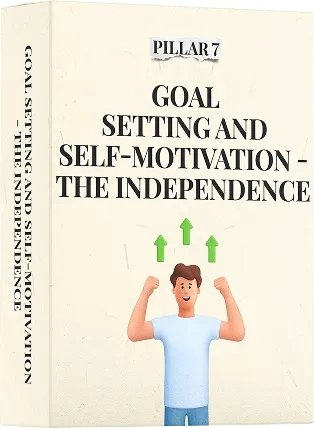
PILLAR 8: Advanced Strategies - The Elite Performance
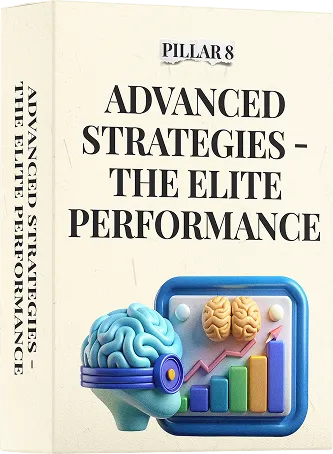
Sophisticated techniques for exceptional emotional and mental capabilities
Advanced stress inoculation training for high-pressure situations
Building leadership qualities and emotional intelligence
Preparing your child for adult-level emotional challenges
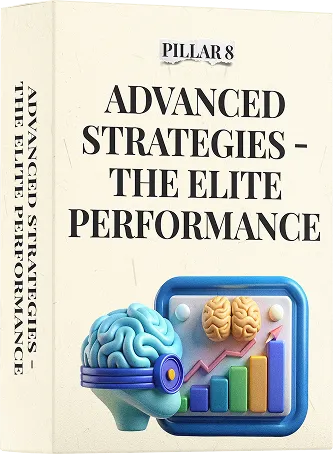
A Special Note for Single Moms Navigating Hard Seasons
If you're a single mom, whether by divorce, separation, or because you’re carrying most of the emotional load alone, I want you to hear this:
You are not behind.
You are not failing.
And your child is not doomed because of what another home looks like.
You have more power than you think. Even in situations where:
the other parent is unpredictable
communication is stressful
your child is exposed to chaos or mixed messages
you’re trying to be the steady one in an unstable dynamic
you’re exhausted from holding everything together
…this program was built to support you just as much as your child.
Kids do not need two perfect parents. They need ONE emotionally safe parent. One steady voice.
One soft place to land. One person who teaches them how to understand their feelings and trust themselves. And that one person can be you.
Inside this program, you’ll learn tools that work even if you don’t have cooperation from the other home. Even if boundaries aren’t respected. Even if you’re parenting through manipulation, tension, or inconsistency.
Because emotional resilience isn’t built by controlling the other parent, it’s built through the connection between you and your child.
You can become the anchor. You can create peace in your home. You can raise a child who feels safe, grounded, and confident no matter what chaos exists outside your walls.
And you don’t have to do this alone anymore.
Crisis Management Protocols ($147 Value)
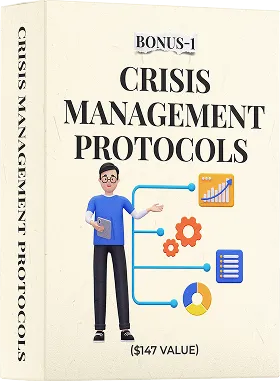
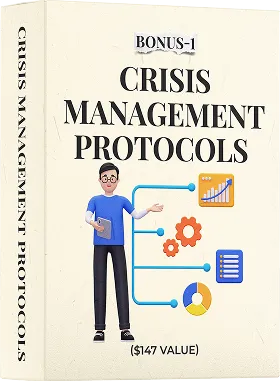
Step-by-step emergency procedures for meltdowns, defiance, and emotional overwhelm
De-escalation techniques that work in the heat of the moment
Recovery strategies that turn crises into learning opportunities
Progress Tracking System ($97 Value)


Scientific assessment tools to measure your child's emotional development
Milestone checklists for each pillar of resilience
Data-driven approach to monitoring growth and adjusting strategies
Private single mom Community Access ($97 Value)
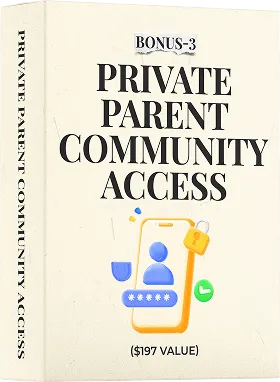
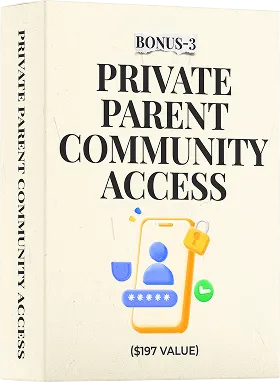
Step-by-step emergency procedures for meltdowns, defiance, and emotional overwhelm
De-escalation techniques that work in the heat of the moment
Recovery strategies that turn crises into learning opportunities
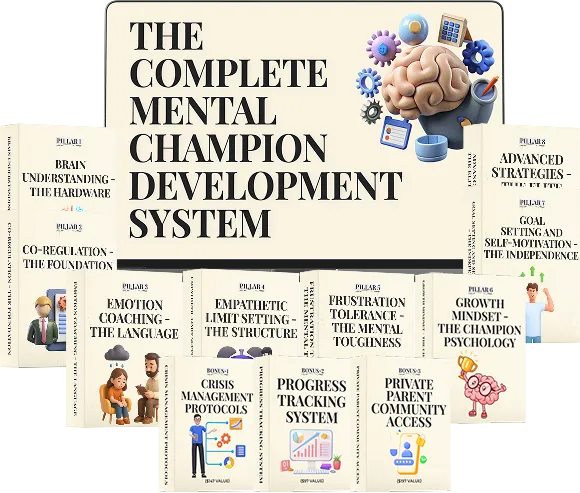
TOTAL VALUE: $1,547
But this complete system that transforms your parenting and your child's future is yours today for just $47.
That's less than one session with a child therapist. Less than most parenting books. A fraction of what you'll spend dealing with the consequences of poor emotional regulation over your child's lifetime.
This is the complete blueprint for raising a child who doesn't just survive challenges - but thrives because of them.

THE 'FIRST CALM WEEK' GUARANTEE
Here's how confident I am that this research will work for your family:
Use the Generational Reset Protocol for 30 days. If you don't experience at least one full week where your child handles disappointment calmly, transitions smoothly, and communicates their needs with words instead of behaviors, I'll refund every penny AND let you keep everything.
No questions asked. No hoops to jump through. Just email me and I'll process your refund within 48 hours.
You’ll have AT LEAST one moment where you feel shocked at how your kid handles a moment… how they transition positively… and then you’ll know it’s working

But here's why I can make this guarantee with complete confidence:
This isn't based on my opinion or personal experience - it's based on decades of validated research from the world's leading institutions. When Harvard, Stanford, and the University of Washington all reach the same conclusions about what works, you can trust the science.

This means you have three possible outcomes:
Outcome 1: Your child develops better emotional regulation and your family experiences more peace (which is what happens for 89% of families)
Outcome 2: You get your money back AND keep $1,482 worth of research-based parenting strategies completely free
Outcome 3: There is no outcome 3 - you literally cannot lose

Either way, you win.
But here's what you need to know about timing...
The research is clear that the earlier you implement these strategies, the faster you'll see results. Every day you wait is another day your child's brain continues developing reactive patterns instead of resilient ones.
And right now, you have a unique opportunity to access this complete research compilation at a fraction of its true value...
This offer is going to be evergreen. The offer does not expire.

EVERY DAY MATTERS FOR YOUR CHILD'S DEVELOPING BRAIN
After all that science, you wanna know why this program REALLY matters… and why right now is the best time to start?
Every single interaction you have with your child is either building emotional resilience or reinforcing emotional reactivity.
Emotional resilience is the one skill your child needs no matter what life looks like at home - single-parent households, blended families, or even toxic dynamics. Resilience protects them from internalizing chaos and teaches them to find safety within themselves.
The neuroscience is clear: your child's brain is forming neural pathways right now based on how you respond to their emotions. Each time you react from inherited patterns instead of research-based strategies, you're literally wiring their brain for more emotional dysregulation.
Here's what's happening in your child's brain every day you wait:
Each meltdown handled with traditional methods strengthens the neural pathways that make future meltdowns more likely
Each emotional outburst met with punishment or dismissal teaches their brain that emotions are dangerous and must be suppressed or exploded
Each day of reactive parenting reinforces the generational patterns that created the problem in the first place
Meanwhile, children whose parents use these research-based techniques are:
Developing stronger emotional regulation neural pathways every day
Learning that emotions are manageable and communicable
Building the brain architecture for lifelong resilience
These strategies work whether your child is with you full-time, part-time, or living between two homes. You can build emotional security from your side of the fence.
The research from Harvard's Center on the Developing Child is crystal clear:
"The experiences children have early in life literally become embedded in the architecture of their brains."
This means every day you continue using inherited parenting patterns instead of science-based strategies, you're missing opportunities to build the emotional resilience your child needs.
Your child's brain won't wait for you to be ready. It's developing right now, with or without the right strategies.
The question is: will you let another day pass reinforcing reactive patterns, or will you start building resilience today?
Kids don’t need a perfect home. They need ONE emotionally safe parent who teaches them how to name their feelings, calm their bodies, and trust themselves, and that can absolutely be you.
WHO THIS SYSTEM IS PERFECT FOR
This system isn’t just for “perfect” families, it’s built for real moms (and dads too) navigating real-life challenges, two households, or imperfect co-parenting dynamics.
Moms parenting solo or co-parenting in stressful, confusing, or emotionally draining dynamics
Moms navigating two households, inconsistency, or unpredictable rules
Moms who want their child to feel safe, seen, and supported no matter what happens in the other home
YOUR CROSSROADS MOMENT
You now stand at a crossroads between two futures for your child:
PATH 1
Continue using the inherited parenting patterns that aren't working. Six months from now, you'll still be dealing with daily meltdowns, emotional chaos, and the exhaustion that comes from reactive parenting. Your child's brain will have spent six more months wiring itself for emotional dysregulation instead of resilience.

PATH 2
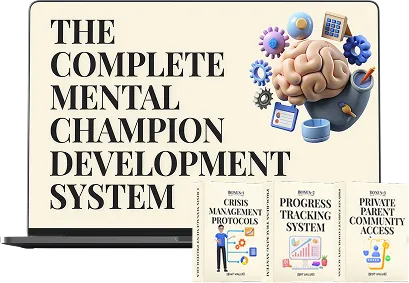
Access the complete research compilation today and start implementing science-based strategies that build emotional resilience. Within 30 days, you could be seeing calmer transitions, better communication, and a child who comes TO you when upset instead of melting down.
The choice is yours.
But remember - your child's brain is developing right now. Every interaction is either building the neural pathways for emotional resilience or reinforcing patterns of reactivity.
The research is clear. The strategies are proven. The only question is whether you'll use them.
Step 1: You'll be taken to a secure checkout (takes 2 minutes)
Step 2: You'll receive instant access to the complete research compilation
Step 3: You can start implementing the first co-regulation technique tonight
Step 4: Within days, you'll notice your child responding differently to your new approach
💯 90-day money-back guarantee

You Save: $$1,382
That's less than 90 cents per day for a month - less than a cup of coffee.
Bonuses Will Be Delivered Instantly.
Get Full Access Right Away.
🔒100% Secure 256-Bit Security Encryption

Your child's emotional future is in your hands.
→ The research is waiting.
→ The strategies are proven.
→ Your child's developing brain won't wait.
What will you choose?
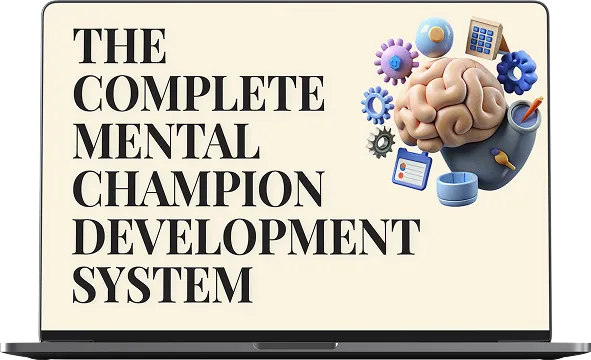
Still Not Sure IF this is for you?
Frequently Asked Questions
Q: Is this just another parenting method, or is it actually different?
A: This is fundamentally different because it's not based on opinion or tradition - it's a compilation of validated research from Harvard, Stanford, and other leading institutions. Instead of guessing what might work, you're implementing strategies that have been scientifically proven to build emotional resilience in children's developing brains.
Q: Will this work for strong-willed or "difficult" children?
A: Absolutely. The research shows that children labeled as "difficult" often have more sensitive nervous systems that respond even better to co-regulation techniques. What looks like defiance is usually emotional dysregulation - and when you address the real cause with research-based strategies, the "difficult" behaviors naturally resolve.
Q: My child is already seeing a therapist. Will this conflict with their treatment?
A: Not at all. These research-based techniques actually complement therapy beautifully. Many therapists recommend co-regulation and emotion coaching to parents. You're learning to support your child's emotional development at home, which accelerates therapeutic progress. The research comes from the same institutions that train child psychologists.
Q: How quickly will I see changes in my child's behavior?
A: The research indicates that most families notice initial changes within 7-14 days of consistent implementation. Significant transformation typically occurs within 30-90 days. Remember, you're literally rewiring neural pathways, so some changes happen quickly while deeper patterns take more time to shift.
Q: What if I've already tried "everything" and nothing has worked?
A: If you've tried traditional discipline methods, reward systems, or even gentle parenting approaches, you haven't tried THIS. This system addresses the neurological root cause of emotional dysregulation rather than just managing surface behaviors. The research shows why previous methods failed and what actually works.
Q: Is this only for young children, or will it work for teenagers too?
A: The research applies to all developing brains, from toddlers through teenagers. The brain's capacity for emotional regulation continues developing into the early twenties. The system includes age-specific adaptations because different developmental stages require different approaches, but the core principles work across all ages.
Q: I'm worried this might be too complicated to implement with my busy schedule.
A: The beauty of research-based strategies is that they're often simpler than the complicated systems you're probably using now. Instead of managing elaborate reward charts or consequence systems, you're learning to respond in ways that naturally build your child's internal regulation. Most techniques take seconds to implement once you understand them.
Q: How do I know this research is legitimate and not just marketing claims?
A: Every technique is referenced to peer-reviewed studies from institutions like Harvard's Center on the Developing Child, University of Washington, and Stanford. The research summary guide includes full citations so you can verify any claim. This isn't marketing - it's science translated into practical strategies.